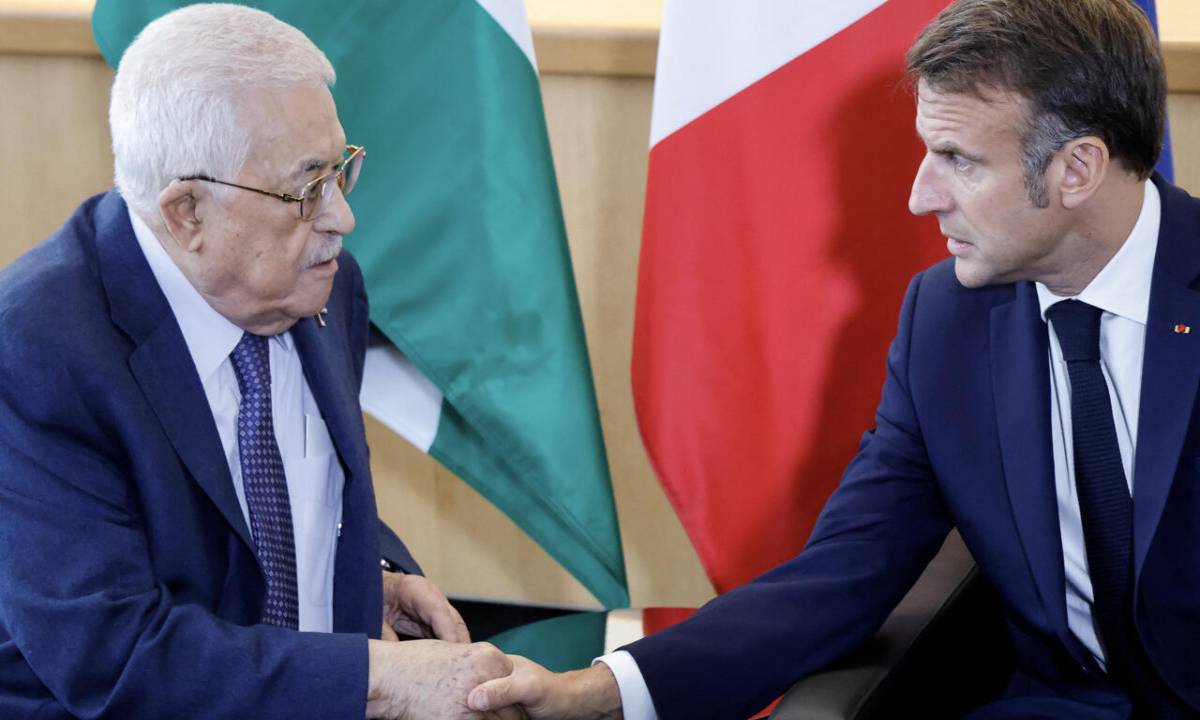2135 Views
France Just Crossed the Red Line: The West’s Palestinian Statehood Split Goes Public
The recognition of the State of Palestine remains one of the most controversial issues in international diplomacy, particularly for Western countries like France and the UK, which maintain strong relations with the Israeli regime. As of July 2025, both nations are reassessing how to engage with the Palestinian statehood question amidst rising regional tensions and mounting domestic pressure. France has taken a bold step by committing to formal recognition, while the UK continues to tread cautiously. This contrast reflects each country’s attempt to balance support for Palestinian rights with the maintenance of strategic alliances.
France has emerged as a frontrunner among Western states by announcing its intent to formally recognize the State of Palestine at the United Nations General Assembly in September 2025. In a July 2025 statement, French President Emmanuel Macron described the decision as a “moral duty and political necessity” aimed at addressing the humanitarian crisis in Gaza and reviving the two-state solution. This would make France the first G7 country and the first permanent member of the UN Security Council to take such a step—although several smaller European states had previously moved toward recognizing Palestine.
Macron’s move is both strategic and symbolic. By recognizing Palestine, France aims to pressure other European nations, including the UK, to follow suit—a shift that could alter the dynamics of Middle East peace negotiations. This step comes amid growing global outrage over the humanitarian disaster in Gaza, where hunger and civilian casualties have fueled urgent calls for tangible action.
The decision has not come without controversy. Israeli Prime Minister Benjamin Netanyahu condemned it as “rewarding Hamas’s actions,” while U.S. Secretary of State Marco Rubio called it a hindrance to peace efforts. Despite these tensions, France continues to emphasize a multilateral approach and hopes to leverage its influence in the EU and UN to garner broader support and position itself as an effective actor in resolving the Palestinian issue.
In contrast, the UK’s stance remains more cautious, shaped by its historical role in the region and its strategic ties with both the U.S. and Israel. Under the previous Conservative government, Britain limited its policy to general support for a two-state solution without committing to formal recognition. However, following the Labour Party’s landslide victory in July 2024, Prime Minister Keir Starmer has come under increasing pressure to revisit this policy.
In July 2025, over 200 Members of Parliament—including many from Labour—signed a letter urging Starmer to recognize Palestine. They called the move an “undeniable right” and warned that continued delay might result in a situation where “there is no state left to recognize.” The Foreign Affairs Committee, chaired by Labour’s Emily Thornberry, also stressed the urgency of the matter and demanded immediate action. Nevertheless, Starmer has stated that recognition must be part of a negotiated peace agreement, reflecting the UK’s traditional view that unilateral measures may undermine diplomatic efforts.
Even so, there are signs of a potential shift in the UK government’s position. A government official suggested that Britain might recognize Palestine before the next general election, indicating Labour leadership’s responsiveness to both internal and international pressures. However, this cautious optimism is tempered by the UK's need to maintain its "special relationship" with the U.S.—which opposes unilateral recognition—and its long-standing ties to Israel.
Furthermore, the international context has significantly influenced both nations’ positions. As of March 2025, 147 out of 193 UN member states had recognized Palestine, with recent additions including Ireland, Norway, and Spain.
France’s decision aligns with this growing global consensus, particularly among African, Asian, and Arab states. Saudi Arabia welcomed France’s move, calling it a step toward Palestinian self-determination. While the UK has yet to join this group, it faces increasing pressure to align with its European partners.
The ongoing conflict in Gaza and the failure of ceasefire talks in Qatar have amplified the urgency of Palestinian recognition. Both France and the UK view recognition as a catalyst for restarting peace negotiations, though critics argue the move may have limited immediate impact—especially given the fragmented nature of Palestinian territories and the absence of a unified political leadership.
Ultimately, France’s recognition of Palestine and the UK’s potential policy shift mark a pivotal moment in the Israeli-Palestinian conflict. France’s bold action positions it as a leader in Western diplomacy, but its effectiveness depends on its ability to inspire broader international efforts. Britain’s cautious approach reflects the complexities of its domestic and international commitments, yet growing parliamentary and public pressure suggests change may be on the horizon. Still, recognition alone is unlikely to resolve Palestine’s pressing challenges, such as the humanitarian crisis in Gaza, the occupation of the West Bank, and unresolved issues around borders, Jerusalem, and refugees.
Solving the Palestinian issue requires a serious and immediate solution. While the steps taken by France and the UK may pave the way for broader international consensus, they must be accompanied by practical measures to address the root causes of the conflict. Without such efforts, the recognition of the State of Palestine risks becoming an empty gesture, leaving Palestinians to endure continued hardship. The road to peace is long and fraught with difficulties, but it demands bold, coordinated, and actionable engagement from the global community.
*Translated by Ashraf Hemmati from the original Persian article written by Amin Mahdavi

Comment
Post a comment for this article